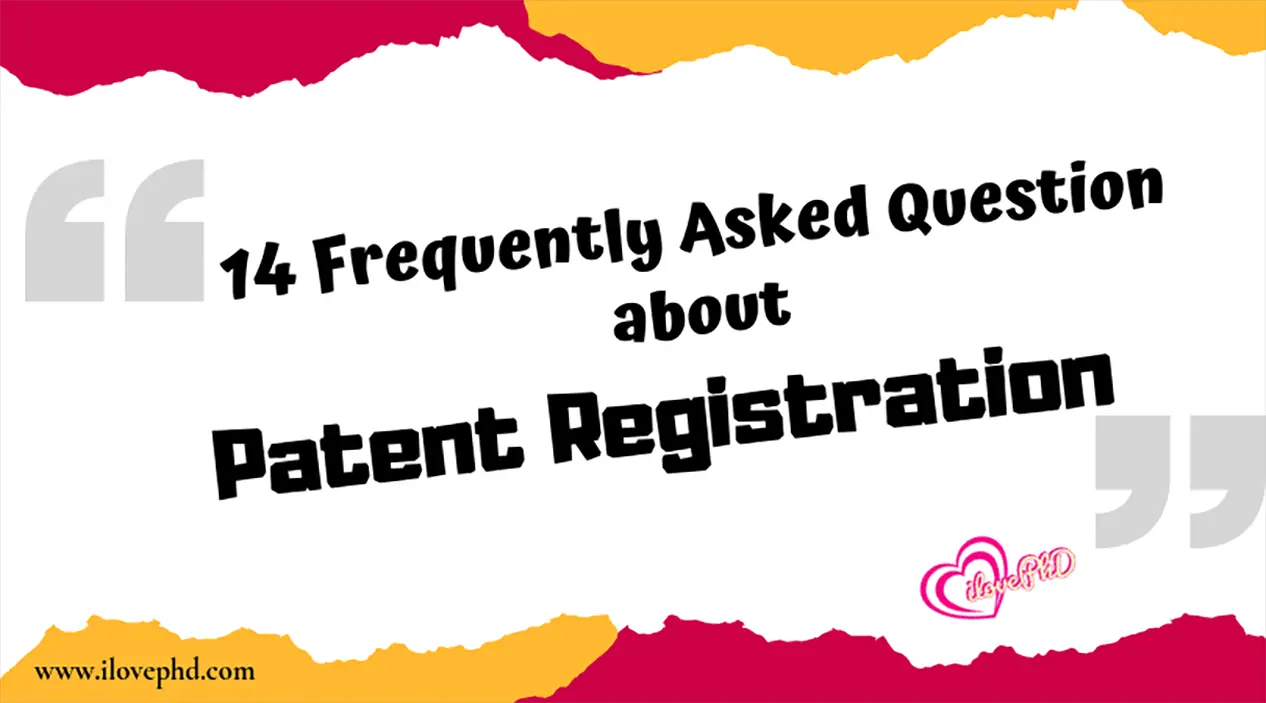Patent registration helps to protect inventions that are novel. By patenting an invention, the patentee is able to control the making, using, selling, or importing of the patented product or process for producing that product without his/her consent. But, when it comes to registering our novel research ideas as a patent, there are many questions arise.
In this article. ilovephd provides 14 Frequently Asked Questions(FAQ) about Indian Patent Filing and answers in detail.
FAQs about Patent Registration
1. What is a Patent?
A patent is an exclusive right granted by the government to the inventor of an invention.
The invention needs to be a new and inventive solution to an existing technological problem.
2. What is the procedure to apply for a Patent?
The patent begins with the application while submitting the application.
First, you need to submit provisional or complete specifications about the invention to the patent office.
After submitting the provisional specification you will get 12 months’ time to submit a full specification and continue with the examination.
Upon successful completion of the examination, A report will be provided for objections then it published in the patent journal.
Also, if no objection made within 6 months, then the patent will be granted.
3. What are all the different types of patents?
The types of patents are listed below.
- A process, such as a computer algorithm.
- A machine is used to make something.
- The specific item of manufacturing.
- Improvement of an existing idea.
- Composition of matter- a recipe for creation.
4. How long the protection will be provided?
Patent protection is not the permanent one it is for a limited period of time, in some countries it is for 20 years, later the invention will go for the public domain.
5. Who grants Patents?
Generally, it will be granted by the controller of patents in the national patent office.
6. Who can apply for a Patent?
Generally, the true and first inventor or his assignee can file for a patent and in certain situations, his legal representatives also can file for a patent.
7. How can we apply for a Patent?
You can apply through an application in the patent office or through an online application.
8. Can I able to file the Patent for published information?
No, it is granted for an unpublished invention only. The invention should be novel and non-obvious.
Patent law provides a grace period of about 12months after such publication with a certain condition to grant a patent.
9. What can be Patentable?
Any invention or inventive step which has novelty and is capable of industrial application, such inventions or inventive steps can be patentable.
It should not fall on the explicit exclusions for a patent under s.3 and s.4 of Indian patent act.
10. Is that the examination starts automatically?
No, the examination will begin once it was requested by the patentee. It is requested within 48 months from the prior date or filing.
11. What will be the next step after the examination?
Once the examination is done, the patent office will issue a report, based upon the report if any requirement needs to make, it to be done within the 12 months.
Once done and there is no petition for objection the paten will be granted.
12. What if no reply or nothing is made for such requirement asked by the patent officer within 12 months?
If there is no reply in 12 months, it will be considered an abandoned application.
13. When can we object a patent?
A patent can be objected to in two ways one is pre-grant and another post-grant.
Pre-grant objection – within 6 months from the date of patent journal publication.
Post-grant objection– within 12 months from the grant of patent.
14. Do the patent right applicable to all countries?
No, because it is a territorial right only. It can be exercised within the country.
Hope, this article helps you to get more information about the registration of the patent.
You might also love to read



[…] can retain patent, trademark and other intellectual property rights (including research […]